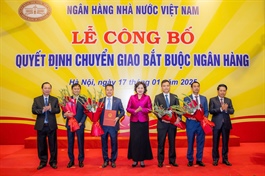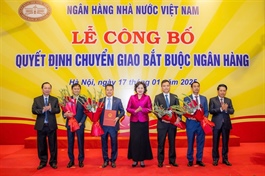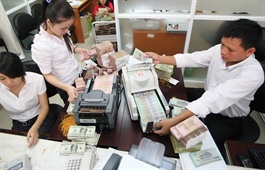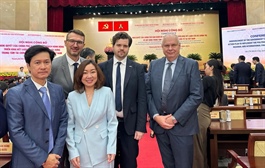The Investment Support Fund provides significant benefits
The Investment Support Fund provides significant benefits
The Investment Support Fund provides significant benefits, particularly for businesses operating or planning investments in high-tech sectors. Support received by companies under this policy is exempt from corporate income tax. Tran Anh Son of Deloitte Vietnam provides more detail.
|
Tran Anh Son, Tax & Legal director, Global Innovation and Investment Incentives at Deloitte Vietnam said, "Businesses can benefit from financial relief through specific support rates tailored to annual costs or initial investment costs, depending on eligibility."
For instance, training and human resource development expenses may receive up to 50 per cent support, while research and development (R&D) expenses may be covered up to 30 per cent. Fixed asset investments and high-tech product manufacturing expenses can receive maximum support of 10 per cent and 1 per cent, respectively, while strategic projects in sectors like semiconductors and AI may qualify for up to 3 per cent support.
Social infrastructure system investments may be supported up to 25 per cent. For initial investment costs, the subsidy could be up to 50 per cent. This support structure enables businesses to focus resources on scaling production, developing new technologies, and improving competitiveness.
The policy also promotes innovation, particularly in high-tech industries like semiconductors and AI, by offering subsidies for R&D and human resource development.
In addition, businesses investing in R&D centres are also empowered to build internal research capabilities, enhancing their global value chain positioning.
In addition, support from the fund improves operational efficiency and can elevate a firm's reputation among partners and clients, creating a foundation for additional domestic and international investments.
Finally, businesses engaging in this policy contribute to Vietnam’s sustainable economic growth, fostering a stable and long-term investment environment.
Son also emphasised that accessing the Investment Support Fund requires meticulous preparation and long-term strategic planning. "Firms should first study Decree No.182/2024/ND-CP to fully understand its provisions, eligibility criteria, and the list of supported costs. This analysis helps identify compatibility with the decree’s objectives, minimising errors and enhancing access to support," said Son.
In addition, Son believes businesses should review their investment plans, including capital scale, projected revenue, and related expenses, saying, "Ongoing projects should be assessed against the decree’s criteria, while new projects should be planned from inception to align with eligibility requirements, particularly for critical criteria like minimum investment thresholds and disbursement timelines."
"Application dossiers should be meticulously prepared, ensuring transparency and accuracy. Firms in high-tech sectors need to obtain certification as high-tech entities or activities, while financial reports, expense evidence, and other legal documents should be submitted in compliance with regulations," Son suggested.
Finally, consulting investment and tax policy experts is advisable to ensure applications and plans meet the requirements, especially for large or complex projects.
Decree 182 introduces two primary forms of support from the Investment Support Fund, annual expense support and initial investment cost support. Each form targets specific industries and enterprises, aligning with sectoral development objectives.
Annual expense support applies to four groups: high-tech enterprises, projects manufacturing high-tech products, projects applying high technology, and enterprises investing in R&D centres. Projects in the first three groups must typically meet a minimum investment threshold of VND12 trillion ($490 million) or achieve annual revenue of VND20 trillion ($816 million).
Exceptions apply to projects in strategic sectors such as semiconductor manufacturing, integrated circuits, and AI data centres, which require only VND6 trillion ($245 million) in investment or VND10 trillion ($408 million) in annual revenue. Some projects with innovative products or technologies may qualify without meeting capital or revenue criteria.
Businesses investing in R&D centres must commit to a minimum investment of VND3 trillion ($122 million), with at least VND1 trillion ($40 million) disbursed within three years to ensure feasibility and timely execution.
The decree specifies support percentages for different expense categories, urging enterprises to thoroughly study eligible expenses for alignment with their projects. Eligible costs include R&D, training and human resource development, fixed asset investments, high-tech product manufacturing, and social infrastructure system investments.
Initial investment cost support, on the other hand, focuses primarily on enterprises with R&D centres in strategic sectors such as semiconductors and AI. Eligibility criteria include no overdue tax liabilities at the time of application and evidence of the venture’s positive impact on the innovation ecosystem.
Through the Investment Support Fund, Vietnam expands its incentive framework by introducing cost-based incentives alongside traditional profit-based incentives. This necessary shift brings flexibility and ensures effective support for priority inititatives.





























